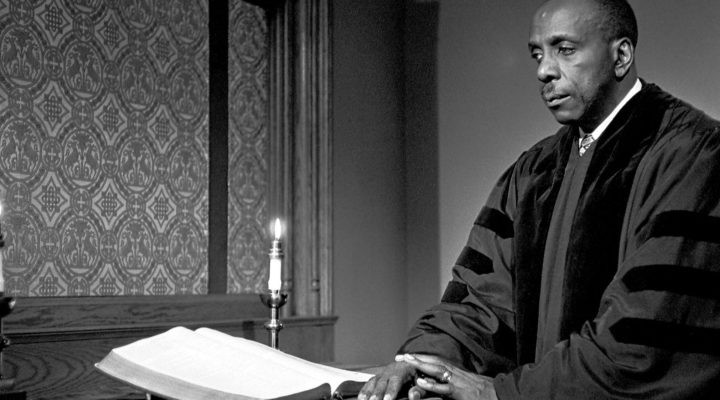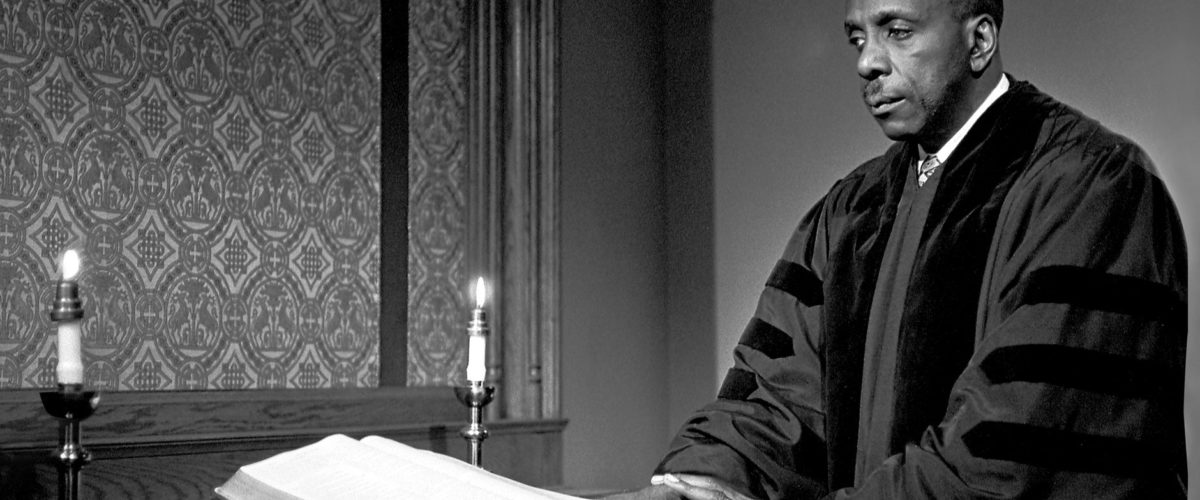At the dawn of 1955, civil rights leader and Black theologian Howard Thurman preached on the Apostle Paul’s moral struggle in the Letter to the Romans. Mid-letter, Paul confesses he desires to do right, but there is a war within him between the law of sin and the law of God. According to Thurman, Paul’s major ethical obstacle was his privileged status as a free man.
Paul was a Jewish Roman citizen from Tarsus, but he followed Jesus of Nazareth, who was not free. As Thurman puts it: “If a Roman soldier pushed Jesus into a Palestinian ditch, he could not appeal to Caesar, it was just another Jew in the ditch. But if a Roman soldier pushed Paul into a ditch, he could appeal to Caesar, and that made a difference in his psychology and in his philosophy of history as it would make in your case or mine. … It is Paul the Roman citizen who is battling all the time with Paul the Christian.”

Laura Levens
Paul courageously battled with integrity and imagination, and thus for Thurman, he is a model for everyone’s moral struggle to walk after Jesus, in which “the light of the living God” may be found.
White Christians should learn from Thurman
As 2021 begins, the Southern Baptist Convention seminary presidents, and indeed all white American Christians, need to engage in this same battle Thurman described in Paul. In the United States, white Americans — especially white Christians — have full citizenship like Paul. We live in a nation made for whiteness.
In 2020 alone, we witnessed multiple brutal deaths of African Americans at the hands of police and vigilantes. African Americans cannot trust banks, emergency rooms, standardized testing, judicial courts, and more because racial injustice persists within policies and textbooks as well as individuals. If you are white, you are free, and your benefits are ensured by the oppression of people of color, especially African Americans.
It is time for these seminary presidents to take up the moral struggle against their privileged, powerful status in this country as white Christian religious leaders.
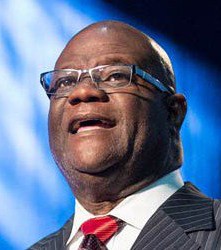
Dwight McKissic
SBC Black pastor Dwight McKissic calls the presidents’ recent statement banning Critical Race Theory, Intersectionality, and critical theory a “bombshell.” For McKissic, the presidents have created a “fault line in the SBC,” and thereby have initiated a decisive moment for the future of racial justice and race relations within the convention.
Black pastors and others are watching to see if the white denominational leadership will struggle like Paul against their full citizenship. Will they acknowledge the war within them between white supremacy and the kingdom of God?
Engaging in the moral struggle against whiteness requires honesty, courage, commitment and continued repentance. It requires the ability to recognize and creatively address multiple levels of racism within persons, relationships and structures or systems.
SBC seminary presidents face obstacles
As I read the seminary presidents’ recent writing on CRT, there are major obstacles they must address before they can fully engage.
First, the seminary presidents are obstructed by their belief in their ability to interpret Scripture and write theology in a purely objective manner. Their confidence in themselves exposes their blindness to the way in which they are privileged and powerful.
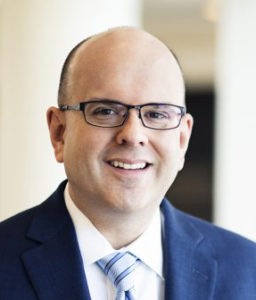
Adam Greenway
In his open letter to Southwestern Seminary, President Adam Greenway publicly rebuked Marshal Ausberry, a leading Black SBC pastor, for saying the “six anglo brothers meeting to discuss racism and other related issues without having ethnic representation in the room in 2020” looked “at worst … like paternalism, at best insensitivity. The only outcome can be from their life experience, which really ignores the broader family of Southern Baptists.”
Greenway lashed out at Ausberry and others who question his ability to parse human experience from “biblical and theological truth.” Greenway then insinuated that Ausberry and his organization, the SBC National African American Fellowship, had wholly adopted CRT and “bore false witness” by suggesting the white male presidents acted from partial knowledge instead of objective mastery.
Where’s the evidence?
Additionally, the past month has exposed the obstinate refusal of the SBC seminary presidents to provide specific evidence from CRT to explain their objections.
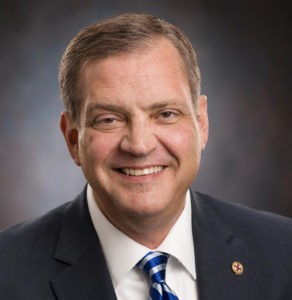
Albert Mohler
One source undergirding their obstinacy is an essay by Southern Baptist Theological Seminary President Al Mohler. Published shortly after the death of George Floyd and amid widespread national protests, Mohler’s June 2020 essay claims CRT is merely another ideology displacing Jesus as Savior. Like the social gospel and liberation theology before it, Mohler claims CRT replaces the good news of the forgiveness of sins with the false ideology of salvation for society by means of revolution, hence it is “Marxist.”
In Mohler’s telling, Protestant liberals “denied” Jesus with the social gospel and Roman Catholic liberation theologians “jettisoned” the good news by reaching for social progress and revolution. Mohler argues CRT also falls outside the strict boundaries of “biblical justice” because it defines sin and salvation as structural instead of personal. He warns that dangerous “Marxism” lies behind everything smelling of “social gospel” and “liberation,” and then adds “systemic racism” to the list. Thus Mohler and others refuse to discuss CRT on its own merits because they have rejected it as another false gospel to be rooted out.
The problems with Mohler’s argument are legion.
First, Mohler tells a revisionist history of the social gospel and liberation theology. Evangelical Christians were and continue to be a part of these theological movements. American Methodists and Baptists, for example, ran hospitality houses, built schools, advocated for social welfare, and protested against lynching in the late 19th and early 20th centuries. Liberation theology is a global Christian movement embraced by Protestants, Pentecostals and Catholics. Participants in these movements have been so diverse that Mohler sounds egregiously anti-ecumenical and dismissive of world Christianity.
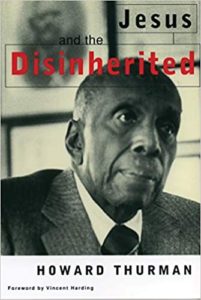 Most importantly, the social gospel, liberation theology, and Black theology (which engages in CRT) do not jettison Jesus. They embrace the good news Jesus preached in concert with the good news Jesus brought in his death and resurrection. Like Thurman, they look at the social and historical aspects of the biblical narrative while they look to their own personal, relational and social environments. They aim to participate in Jesus’ good news addressed to all creation (Mark 16:15), including every person and all society. They recognize Jesus’ offer of forgiveness is an abundant gift of grace to be worked on with one’s whole life.
Most importantly, the social gospel, liberation theology, and Black theology (which engages in CRT) do not jettison Jesus. They embrace the good news Jesus preached in concert with the good news Jesus brought in his death and resurrection. Like Thurman, they look at the social and historical aspects of the biblical narrative while they look to their own personal, relational and social environments. They aim to participate in Jesus’ good news addressed to all creation (Mark 16:15), including every person and all society. They recognize Jesus’ offer of forgiveness is an abundant gift of grace to be worked on with one’s whole life.
To condemn CRT because it resembles social gospel and liberation theology may be the most damaging choice Mohler and the other SBC presidents could make in this moment.
If they opened up to scholars and preachers who draw from CRT, they could learn from their own membership and other Black theologians and biblical scholars.
If they could surrender their objectivity, they could learn how to identify, interrogate and engage their experiences from Black and womanist theology.
“If they would renounce their dichotomy between individual and social sin, they could reckon with the generational trauma African Americans experience as the sinned-against of this nation.”
If they would renounce their dichotomy between individual and social sin, they could reckon with the generational trauma African Americans experience as the sinned-against of this nation.
If they could abandon their reductive vision of culture as evil, their fellow Black pastors and students could teach them to perceive how God is working redemption even in the shadows of despair.
An invitation to enter the moral struggle
When they can do these things, then they might understand why the National African American Fellowship, McKissic and others “affirm that the fullness of the gospel speaks to our need for salvation as individual sinners as well as addresses the brokenness of the world by working to see the kingdom of God advanced in this life with full assurance that the kingdom will one day come in full.”
In their petition for SBC justice and repentance, these leaders poignantly signal their devotion to the fullness of Christ’s gospel with a reading of Luke 4, wherein Jesus proclaims God’s promises in Isaiah to set the captives free are fulfilled in him. They assert a wide vision of sin and salvation that includes repentance, forgiveness and continuous conversion of self and world.
Until these SBC seminary presidents enter the moral struggle between the way of Jesus and the way of white American citizenship, they will have a partial and a distorted view. They may claim to be objective and standing on biblical truth, but their assertions shield them from their own white power and privilege. This is true not only for the SBC presidents, but for all of white Christian America.
Laura Levens serves as assistant professor of Christian mission at Baptist Seminary of Kentucky. She earned a doctor of theology degree from Duke University Divinity School and is ordained within the Cooperative Baptist Fellowship. She lives in Lexington, Ky., with her husband and two children.
Related articles:
Southern Baptists need a vaccine for racism
Could you win a quiz show by defining ‘Critical Race Theory’?
Southwestern president says SBC seminary leaders have been ‘misunderstood’ and ‘misconstrued’
SBC seminary presidents are ‘complicit with evil,’ revered California pastor says
SBC seminary presidents are propagating fear to maintain control | Laura Levens
Is it time for Black Christians to give up on the SBC? | Corrie Shull
How I learned to name my oppression — and my privilege | Meredith Stone
Please listen to my friend Ralph West about racism and the SBC | Joel Gregory

